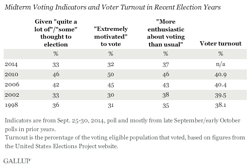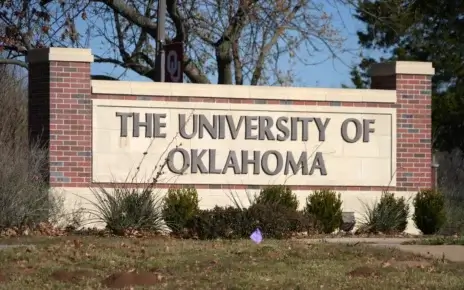NJ voters went to the polls yesterday, Nov. 4, voting on candidates as well as amendments to the state constitution.
According to NJ.com, in addition to candidates, voters will also decide on changes to constitutional rights to bail, as well as the creation of permanent funding for historic preservation.
Regardless of the topics on the ballot, voter turnout remains low, with Christie’s re-election in 2013 seeing a 39.6 percent turnout, according to NJ.com.
The root of this problem is the lack of true competition in NJ elections. According to Dr. Joseph Patten, Chair of the Political Science and Sociology Department, the average reelection rate over the past 20 years is 95 percent, despite having a 10 percent approval from constituents.
Patten said, “Most districts in NJ and across the nation are gerrymandered, so we have very few competitive elections.” Gerrymandering is the process of redrawing voting districts to favor certain parties or candidates.
He continued, “The way that you could have a 95 percent reelection rate in an institution with a 10 percent approval rate is that we don’t have a lot of competition in our elections.”
Accompanying the lack of electoral competition is the stagnation of politically polarizing issues within the state, according to Patten. Property taxes are the recurring topic of political conversation, along persistent consideration of the economy. While both issues are hotly debated, neither topic sees sweeping change.
“New Jersey has, on average, $7000 dollars of property tax per household, which is one of the hot-button issues,” said Patten. He added that property taxes tend to be higher because of NJ’s inefficient town system. “Because we have 565 towns and each town has its own school district, police force, fire department, a lot of those services are funded through property taxes.”
On the economic front, gambling, as seen by the recent push to legalize sports wagering, is also a concern. Dr. Stephen Chapman, associate professor of political science, said, “In recent years, bordering states (PA, most notably) have expanded the amount of legalized gambling. This makes it a strategic game between states. New Jersey obviously wants to keep Atlantic City a viable tourist attraction; however this has become more difficult with expanding options for gamblers within the region.”
It appears that topics like property taxes and gambling expansion still do not prove enough to draw the masses to the polls, especially during a midterm election. With the existence of online absentee ballots, could NJ expect an expansion of online voting to reach those who do not vote in-person?
“Short answer? No,” said Chapman. “We’ve always seen an ebb and flow to voter turnout in the United States. Midterm elections will always have lower voter turnout than presidential elections. It simply is because people are more invested in presidential elections.”
He continued, “It simply comes down to a cost-benefit analysis from the voter; it is costly to become informed, register to vote, make it to the polls, etc. Given the costs incurred from voting combined with the extremely low probability of their vote affecting the outcome, it makes sense for voters to abstain.”
Patten added, that the structure of NJ voting is causing the dismal voter turnout. Because voters believe that their votes do not impact the election, Patten suggested revamping the NJ voting system to be more in line with that of California.
“California’s new primary system attempts to produce more moderate public officials. They have a wide open primary, instead of a party primary. It’s called an ‘Open Top Two Primary’ whereby the top two vote getters from either party move on to the general election,” said Patten.
He continued, “So in California the general election could include two Democratic candidates or two Republican candidates, as opposed to dividing the primary by political parties.”
Thus in this scenario when two candidates from the same party reach the general election, the opposition will vote for the more moderate of the two, leading to the restoration of the political middle.
Dr. Michael Phillips-Anderson, associate professor of communication, reiterated the lack of competition stifles voter turnout. He said, “Expanded early voting or perhaps making voting day a holiday might encourage greater turnout.”
Phillips-Anderson continued, “The only people who vote in off presidential year and local elections tend to be those most interested and committed to the process.”
At this point, an increase in voter turnout might only be possible by rethinking the current electoral system. Mike Hamilton, a senior political science major said, “I always write in my name for president.”
IMAGE TAKEN From Gallup.com


